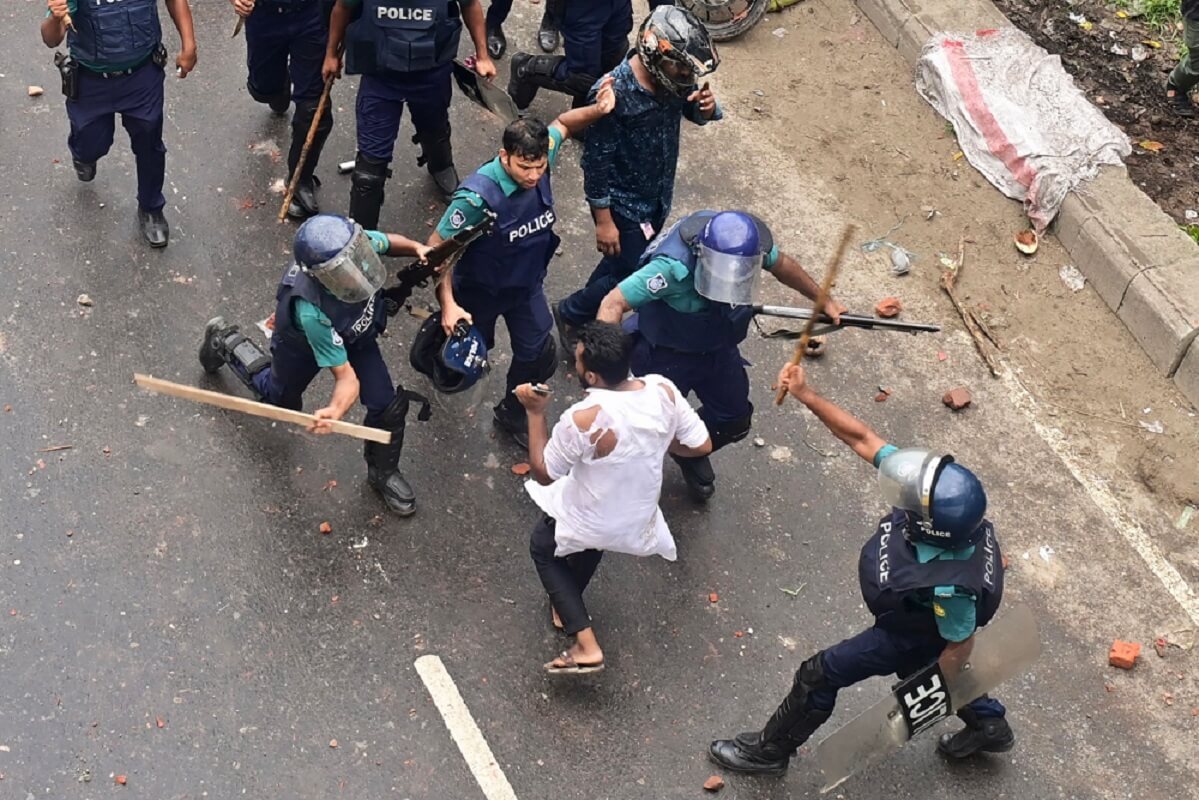Washington Can Give Bangladesh’s Democracy the Kiss of Life
Ahmede Hussain | 05 August 2023
On July 11, Uzra Zeya, the highest-ranking U.S. State Department official to visit Bangladesh in the past three years, said that the United States looks forward to “deepening” its ties with Bangladesh for “the next 50 years.” Bangladesh is often overlooked in the formation of a new cold war in Asia, but Washington needs it on its side. For that to work, however, the United States is going to have to make some hard decisions about how it deals with Bangladesh’s democratic crisis—and the leadership’s ties to both China and India.
At the height of the Cold War, with India and the Soviet Union by its side, Bangladesh—then East Pakistan—fought a civil war in 1971 to become independent. On Dec. 3, 1971, India militarily intervened, and a war that lasted only 13 days saw the surrender of the Pakistan Army and the independence of Bangladesh.
Bangladesh is now a boomtown. Over the past decade, the country has built the vast Padma Bridge, along with a string of other critical infrastructure projects. Its per capita income has outpaced India and Pakistan, and living standards have shot up.
But alongside economic growth has come the crumbling of democracy. Since coming to power in January 2009, Prime Minister Sheikh Hasina Wazed and her party, the Awami League, have been ruling the country with an iron fist.
Hasina presents herself as the bearer of the legacy of her father, Sheikh Mujibur Rahman, a war hero who led Bangladesh’s independence. The Mujib-led government followed a pro-Soviet foreign policy, and, at the end of his rule in 1975, made Bangladesh a self-styled one-party socialist state. That year, Mujib, along with most of his immediate family members, was killed in a military coup. His daughters, who were living abroad, survived.
The two general elections that propelled Hasina to power were heavily rigged, to the extent that the outgoing Japanese Ambassador to Bangladesh Ito Naoki broke all diplomatic niceties and said that he heard about ballot box stuffing by the police overnight, even before the polling started.
Human rights and rule of law have taken a back seat, elections are routinely rigged, and a reign of terror has silenced much of the opposition, disappearing opposition leaders and human rights activists.
A recent documentary by Sweden-based Netra News paints a gory picture of the abduction business. According to the report, Bangladesh’s military intelligence agency, the Directorate General of Forces Intelligence, runs a location known as Aynaghar (the Mirror House) where activists who fall foul with the government are kept illegally imprisoned for an indefinite period, sometimes years.
The inhabitants of the Mirror House are more fortunate than those picked up by the Rapid Action Battalion (RAB). Even though it was formed as a counterterror paramilitary unit of the police, members of the Bangladesh Armed Forces also serve in the RAB’s different units.
Two former military officers who were in the RAB told German broadcaster Deutsche Welle that “…key figures in the ruling government may be harnessing the elite force for political gain, with tacit approval, at the very least, from the highest offices in Bangladesh.”
The RAB’s notoriety for killing people in framed encounters was so widespread that in December 2021, it earned the inglorious title of being the first Bangladeshi organization to earn sanctions by the U.S. Treasury Department.
Ahmede Hussain is a Bangladeshi writer and journalist. He is the editor of The New Anthem: The Subcontinent in Its Own Words. He has just finished writing his first novel.
This article was originally published on Foreign Policy.
Views in this article are author’s own and do not necessarily reflect CGS policy.
